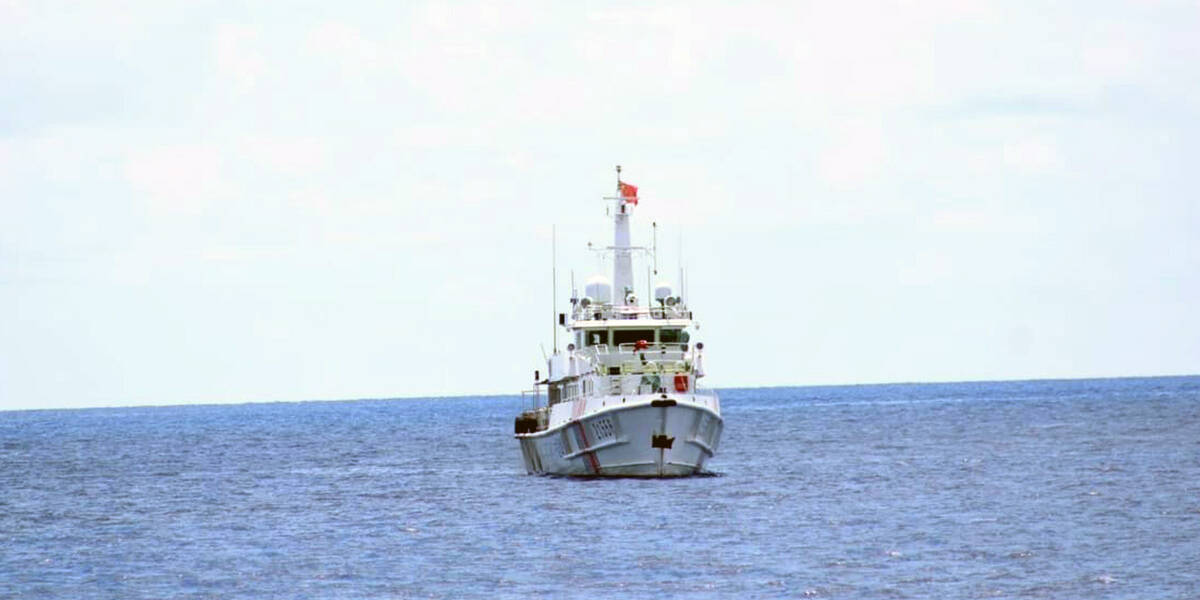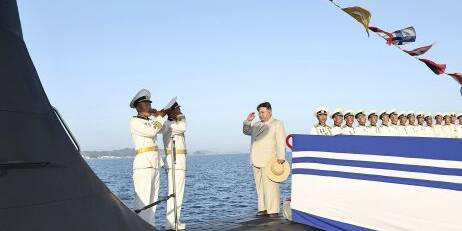Lan D. Ngo, for ASPI The Strategist
Should Vietnam continue building its maritime forces or should it pivot landward to best ensure its security? Few would dispute that this is a critical question that merits close scrutiny. As an emergent middle power, Vietnam simply doesn’t have sufficient resources to simultaneously pursue a powerful navy and a muscular land army. Making appropriate strategic trade-offs is therefore vital to ensuring national security.
However, the recent discussion on this forum about Vietnam’s geostrategic orientation, sparked by Khang Vu’s article, misses a vital point. Debating whether the Vietnamese military should expand landward or seaward adds little value if the kind of future security threat and the scenario under which Vietnam would be attacked are not clearly and accurately specified. After all, beefing up a nation’s military doesn’t improve national security if the weapon systems purchased, and the military doctrine developed, don’t match the most probable threat.
In their Strategist piece, Euan Graham and Bich Tran essentially argue that the Vietnamese military should continue the current maritime focus because Vietnam’s export-oriented economy is dependent on freedom of navigation in the South China Sea. They are concerned that Vietnam could be vulnerable to a blockade should China have ‘uncontested control within the so-called nine-dash line, and acquire access to a naval base in Cambodia’. However, they don’t specify what ‘uncontested control’ means and what would trigger China to blockade Vietnam. Because of that, it’s not clear why this naval blockade should be the nightmare scenario for Vietnamese policymakers and how a Vietnamese naval buildup could forestall such an outcome.
While Nguyen The Phuong is sympathetic to Graham and Tran’s view that Vietnam should prioritise investing in its maritime capabilities, he does a better job of specifying the critical threats that Vietnam might face in the future. According to Nguyen, Hanoi should be most concerned about a military conflict in the South China Sea, which would follow (presumably Chinese) pre-emptive strikes using long-range weapons and cyberattacks. The other nightmare scenario would be ‘a maritime blockade of Vietnamese outposts in the Spratly Islands’. The clear assumption here is that by investing in maritime capabilities, Vietnam could deter China from contemplating or taking such aggressive action. However, as the Russo-Ukraine war has shown, when the attacker is much more powerful than the defender and is determined to wage war, it’s likely that no form of deterrence short of nuclear deterrence would be effective.
In contrast to the previous authors, Vu maintains that Vietnam should prioritise its land forces because fighting land wars has always been more critical to Vietnamese security than the maritime domain. While I agree with him that land-based threats clearly pose a greater danger to Vietnamese security, I can’t see how investing in a powerful land army would prevent China from turning Laos and Cambodia against Vietnam. Whether Vietnam can ensure that its two neighbors remain on friendly terms is up to its foreign policy and diplomatic agility, not its army. Also, it isn’t clear what Vu is arguing for in practical terms. Assuming that land-based threats are more severe, what should Vietnamese leaders focus on? More specifically, what kind of force posture should the Vietnamese army adopt and to what strategic ends?
Because Vietnam sits on mainland Asia but has a long coastline, it has to inevitably prepare for both kinds of threats over the long haul. However, because the sovereignty contest over the South China Sea will not conclude anytime soon and Vietnam has made great strides in demarcating land borders with all of its neighbors, it is more likely that armed conflicts in the near future will be maritime-based rather than land-based. The critical questions therefore are: under what circumstances would such conflict likely to erupt, and what would it look like?
In his 2008 study of China’s approach to territorial disputes, M. Taylor Fravel points out that Beijing has a pattern of acting aggressively in disputes over territory to halt a decline in its bargaining power vis-à-vis other parties. In other words, we should be most worried about China waging armed conflicts when Beijing feels insecure because its power is declining to the extent that it can no longer enforce its territorial claim, or because other states are taking drastic actions to expand their control over disputed territories. This logic explains why China has refrained from invading Taiwan yet always reacts forcefully to any hint of Taiwanese independence. Based on this line of thinking, a defensive posture that doesn’t seek to diminish Chinese control over a piece of disputed territory is likely to be more successful in preventing or at least delaying conflict.
Assuming that any future armed conflict between China and Vietnam would be over the South China Sea, it would most likely erupt when Beijing felt it was losing its grip over some of the disputed islands because it has experienced decline or because other parties are banding together to solve their disputes without China’s participation. And should China initiate conflict out of insecurity, it would likely aim for a swift fait accompli rather than start a massive naval war. For example, it could seize one or two islands controlled by another country and then challenge the defender to escalate the conflict and risk starting a war to recapture the lost territory. That would allow China to assert its sovereignty and regional dominance at lower costs and risks, similar to Russia’s annexation of Crimea.
The key challenge for Vietnam, therefore, is not to deter a maritime war but to develop the right kind of maritime capabilities that would allow it to fight effectively in the grey zone. More precisely, it needs a robust naval militia that could deny China outright control over any disputed island without openly escalating the conflict to the level of war. Missiles and fighter aircraft would not be helpful here. Radars and a robust fleet of well-equipped patrol ships that could react quickly and forcefully would play a more vital role in maintaining the status quo. The strategic goal is to deny a successful fait accompli and create space for diplomacy to defuse the crisis.
It’s in these specific terms that we should continue a debate about Vietnam’s strategic choices. The broad binary choice between a landward focus and a maritime orientation is unproductive. What’s critical is that the military be geared to fight and prevail in the sort of conflict that could break out, whether on land or at sea.
The original article can be found here at The Strategist.
Lan D. Ngo is a doctoral candidate in the department of politics at Brandeis University in Massachusetts.
Feature Image; Vietnam’s homegrown Molniya missile corvette, March 2013/Wikimedia Commons
Related Analyses
September 15, 2024
West Philippine Sea: Several factors force BRP Teresa Magbanua to return – PCG
0 Comments1 Minute


